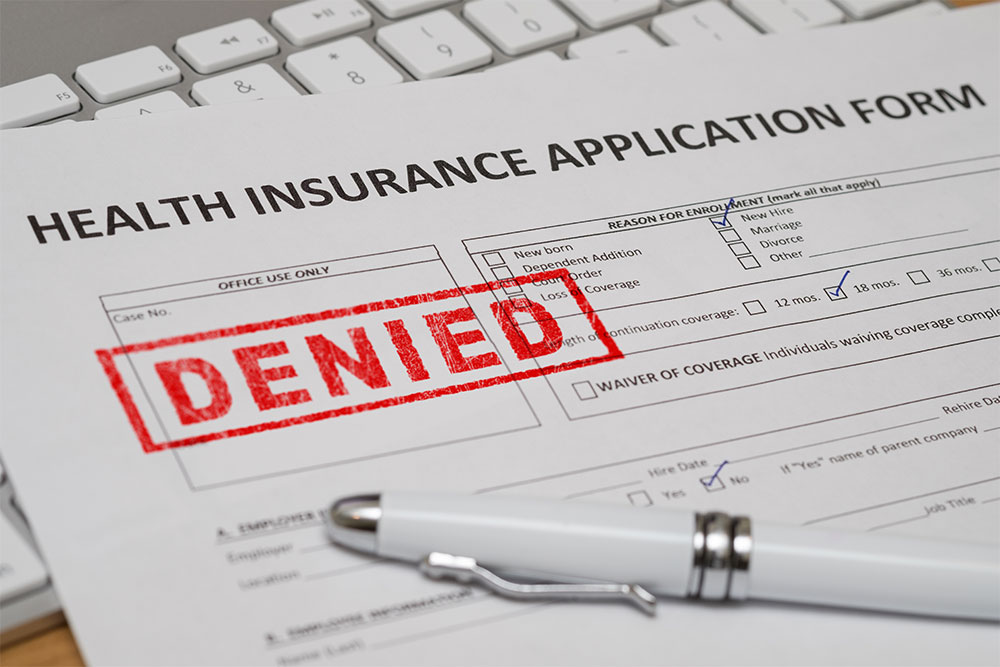Navigating a denial of your private health insurance claim at a time when your focus is on receiving the medical care you need can seem like an uphill battle with your insurance company. Healthcare claims are often complex. It is important to consult with a lawyer who focuses on health insurance claims and possesses the expertise and knowledge to get your claim approved and prevent you from being stuck with a medical bill that your health insurer should pay.
Table of Contents
Know the reasons of health insurance denial
Health insurance companies are required to provide plan participants with a written explanation stating why it denied the participant’s claim for treatment, procedure, testing, or other medical services. Commons reasons insurers deny claims include:
- a finding that the care at issue was not medically necessary;
- lack of pre-certification or authorization of treatment; claim form errors with the patient’s information or diagnosis;
- filing a claim too late; treatment with an out-of-network healthcare provider; and
- a determination that the treatment was “experimental” in nature.
How do I fight health insurance claim denial?
You are entitled to file a written appeal of your denied claim. Oftentimes you must exhaust your health plan’s appeals process before filing a lawsuit. Your plan also has specific time limits for submitting your appeal that vary from plan to plan, so you must be mindful of your appeal deadline. Failure to timely appeal could bar you from filing suit. You may also be entitled to an independent external review conducted by a healthcare professional unaffiliated with your insurance provider.
Should I request external review?
You are entitled to a cost-free, external review if your health plan provides for such a review. That review is conducted by an independent review organization (“IRO”). An IRO provides you with another chance that your claim is approved. However, the IRO may also reach the same decision to deny your claim; and courts may view that decision as credible based on the independent nature of the review. An experienced healthcare lawyer can help guide you through this process.
Can you sue your health insurance company for denying a claim?
Yes, if you have an individual health insurance plan you can file a lawsuit immediately following the denial. In the case of group health plans subject to the federal ERISA statute, you may sue your health insurance company only after you have exhausted the written appeals process set forth in your health insurance plan. If your health insurer upholds its denial of your claim despite your appeal(s), you may file a lawsuit immediately. Also, if your health insurer fails to timely issue a decision on your appeal, or otherwise does not comply with ERISA’s notice requirements, you may be excused from the exhaustion requirement. Health insurance plans often have time limits restricting when a lawsuit may be initiated. So, it is critical that you adhere to those limits to avoid your lawsuit being dismissed from court.
What does a health insurance claim lawyer do?
A health insurance benefits lawyer’s job is to get your claim paid by proving that your health insurer wrongfully denied your claim. The lawyer can step in at any stage after you submit your claim, including during your internal appeal process with the health insurer. The lawyer can also initiate and litigate your lawsuit seeking payment of your claim. Your lawyer’s expertise will allow him or her to interpret and apply the perplexing terms of your health plan to the specific facts of your case. Hiring a lawyer also increases your chances of success by ensuring that your insurer plays by the rules. Don’t hesitate to seek a healthcare lawyer, as it may be the difference between the approval and denial of your claim.







